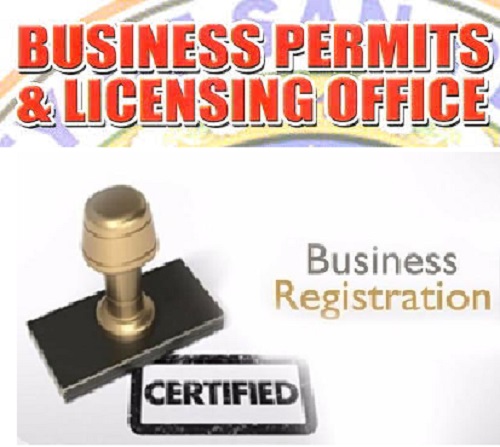
Types of approved business licenses and permits in Nigeria
Types of approved business licenses and permits in Nigeria – Every business person in Nigeria are advised to read this post. This post defines what types of business licenses are in Nigeria. There are a lot of examples of businesses that require licenses in Nigeria. There are also details on how to obtain these business licenses in Nigeria.
Furthermore, on Types of approved business licenses and permits in Nigeria are Common Challenges to Business Licenses and Permits in Nigeria.
Contents
- 1 Cessummit.com business tips:
- 1.1 Types of approved business licenses and permits in Nigeria
- 1.2 The Importance of business licenses and Permits in Nigeria:
- 1.3 Types of approved business licenses and permits in Nigeria
- 1.4 The main types of licenses and permits required to operate a business in Nigeria:
- 1.5 Types of approved business licenses and permits in Nigeria
- 1.6 Examples of businesses that require licenses in Nigeria:
- 1.7 How to Obtain a business license in Nigeria:
- 1.8 Types of approved business licenses and permits in Nigeria
- 1.9 Common Challenges with Obtaining Business Licenses and Permits in Nigeria:
- 1.10 Ways to mitigate challenges of obtaining business licenses and permits in Nigeria:
- 1.11 Types of approved business licenses and permits in Nigeria
- 1.12 Importance of complying with the business regulatory framework in Nigeria:
- 1.13 Read Also for Types of approved business licenses and permits in Nigeria
- 1.14 Summing up on
- 1.15 Share this:
- 1.16 Like this:
Cessummit.com business tips:
Obtaining the necessary business licenses and permits is crucial for businesses operating in Nigeria. It ensures legal compliance, consumer protection, credibility, access to financing, and eligibility for government contracts. Cessummit.com business development and support services will assist you in these your business challenges if contact at +234 905 313 0518 or cessummit0518@gmail.com for more information? Check out our related topics below;
- Approved business licenses in Nigeria
- Types of business licenses and permits in Nigeria
- Authentic Biz Expansion Strategies for Nigerians
Types of approved business licenses and permits in Nigeria
The Importance of business licenses and Permits in Nigeria:
In Nigeria, obtaining the appropriate business licenses and permits is crucial for any business to operate legally and avoid potential legal issues. These licenses and permits serve as proof that a business has met the requirements set by the relevant regulatory agencies and has complied with the laws governing the operation of businesses in Nigeria.
There are different types of licenses and permits required for various types of businesses in Nigeria, depending on the nature of the business, its location, and the industry. For example, businesses involved in food production, transportation, importation and exportation, and pharmaceuticals are required to obtain specific licenses and permits from the relevant government agencies.
Business licenses and permits are essential for the following reasons:
- Legal Compliance: It is illegal to operate a business in Nigeria without the necessary licenses and permits. Failure to comply with these regulations can result in fines, legal action, and the closure of the business.
- Consumer Protection: Business licenses and permits help protect consumers from unsafe products or services. The regulatory agencies responsible for issuing these licenses and permits are responsible for ensuring that businesses operate in compliance with health, safety, and environmental regulations.
- Credibility: Business licenses and permits give businesses credibility and legitimacy. They indicate that a business has met the necessary requirements and has been approved by the relevant regulatory agencies.
- Access to Financing: Some lenders and investors require proof of business licenses and permits before providing financing. Having these documents can increase a business’s chances of obtaining financing.
- Government Contracts: Businesses that have the necessary licenses and permits are more likely to be considered for government contracts. Many government contracts require businesses to have specific licenses and permits to be eligible.
Types of approved business licenses and permits in Nigeria
The main types of licenses and permits required to operate a business in Nigeria:
There are different types of licenses and permits required to operate a business in Nigeria, depending on the nature of the business, its location, and the industry. Some of the main types of licenses and permits required to operate a business in Nigeria include:
- Business Registration: All businesses operating in Nigeria re required to register with the Corporate Affairs Commission (CAC). This involves obtaining a certificate of incorporation, which serves as evidence that the business is a legal entity.
- Trade License: A trade license is required for businesses engaged in trading activities such as buying and selling goods. It is issued by the local government authority in the area where the business operates.
- Tax Identification Number (TIN): Every business operating in Nigeria is required to obtain a TIN from the Federal Inland Revenue Service (FIRS). This is used to identify the business for tax purposes.
- Environmental Permit: Businesses involved in activities that have the potential to impact the environment, such as waste disposal and chemical production, re required to obtain an environmental permit from the Federal Ministry of Environment.
- Health and Safety Permit: Businesses involved in the production or distribution of food, drugs, or medical devices must obtain a permit from the National Agency for Food and Drug Administration and Control (NAFDAC). This permit ensures that the business complies with health and safety regulations.
For types;
- Expatriate Quota: Businesses that wish to employ foreign nationals must obtain an expatriate quota from the Nigerian Immigration Service. This permits the business to hire foreign workers up to a specified limit.
- Import and Export License: Businesses involved in the importation or exportation of goods must obtain the necessary permits and licenses from the Nigeria Customs Service.
- Intellectual Property Protection: Businesses that have created intellectual property, such as trademarks and patents, must obtain protection for their intellectual property from the Nigerian Trademarks, Patents and Designs Registry.
Types of approved business licenses and permits in Nigeria
Furthermore, these are some of the main types of licenses and permits required to operate a business in Nigeria. It is important to note that the requirements for licenses and permits may vary depending on the industry, location, and specific activities of the business. It is advisable for business owners to consult with relevant regulatory agencies or legal professionals to ensure compliance with all applicable laws and regulations.
Examples of businesses that require licenses in Nigeria:
There are various businesses in Nigeria that require licenses to operate legally. Some examples of businesses that require licenses in Nigeria include:
- Food and Beverage Industry: Restaurants, cafes, food vendors, and food production companies require licenses from the National Agency for Food and Drug Administration and Control (NAFDAC) to operate legally.
- Healthcare Industry. Hospitals, clinics, pharmacies, and other healthcare facilities require licenses from the Federal Ministry of Health, Medical and Dental Council of Nigeria, or the Pharmacists Council of Nigeria, depending on the specific activities of the business.
- Real Estate Industry: Real estate companies, property management firms. And real estate agents require licenses from the Real Estate Regulatory Authority (RERA).
- Transportation Industry: Transportation companies such as taxi services, car rental services, and logistics companies require licenses from the Federal Road Safety Corps (FRSC) and the Nigerian Ports Authority (NPA).
- Construction Industry: Construction companies and contractors require licenses from the Council for the Regulation of Engineering in Nigeria (COREN) and the Nigerian Institute of Building (NIOB).
- Energy Industry: Companies involved in the production, transmission, and distribution of electricity require licenses from the Nigerian Electricity Regulatory Commission (NERC).
- Banking and Finance Industry: Banks, financial institutions, and insurance companies require licenses from the Central Bank of Nigeria (CBN) and the National Insurance Commission (NAICOM).
- Education Industry. Private schools, universities, and other educational institutions require licenses from the Federal Ministry of Education and the National Universities Commission (NUC).
These are just a few examples of the various businesses that require licenses to operate legally in Nigeria. It is important for business owners to research and understand the specific licenses and permits required for their industry. And comply with all applicable laws and regulations to avoid legal issues.
How to Obtain a business license in Nigeria:
Obtaining a business license in Nigeria can be a relatively straightforward process. But it depends on the nature of the business and the specific requirements of the relevant regulatory agencies. Here re some general steps that can be taken to obtain a business license in Nigeria:
- Choose a Business Structure: The first step is to determine the appropriate business structure, such as sole proprietorship, partnership, or limited liability company (LLC). This will determine the type of license and permits required.
- Register with the Corporate Affairs Commission (CAC): All businesses operating in Nigeria must register with the CAC to obtain a certificate of incorporation. This involves submitting the required documents and paying the necessary fees.
- Obtain Tax Identification Number (TIN): Every business in Nigeria is required to obtain a TIN from the Federal Inland Revenue Service (FIRS). This can be done online by visiting the FIRS website and following the necessary steps.
- Apply for Industry-Specific Licenses: Depending on the nature of the business, the owner may need to obtain industry-specific licenses and permits. For example, businesses in the food and beverage industry must obtain a license from the National Agency for Food and Drug Administration and Control (NAFDAC). The specific requirements for each license vary, and it is important to consult with the relevant regulatory agencies for guidance.
- Submit Required Documents: Once the necessary licenses and permits have been obtained, the business owner must submit the required documents to the relevant agencies. These documents may include the certificate of incorporation, tax identification number, and industry-specific licenses and permits.
- Pay the Required Fees: There are fees associated with obtaining licenses and permits, and the business owner must pay the necessary fees to the relevant agencies.
Types of approved business licenses and permits in Nigeria
In summary, obtaining a business license in Nigeria involves registering the business with the Corporate Affairs Commission, obtaining a Tax Identification Number, and applying for industry-specific licenses and permits. It is important to research and understand the specific licenses and permits required for the industry and comply with all applicable laws and regulations. It is advisable to consult with relevant regulatory agencies or legal professionals to ensure compliance with all requirements.
Common Challenges with Obtaining Business Licenses and Permits in Nigeria:
Obtaining business licenses and permits in Nigeria can be a challenging process due to several factors. Here are some common challenges that entrepreneurs face when trying to obtain licenses and permits in Nigeria:
- Bureaucracy and Red Tape. The process of obtaining licenses and permits in Nigeria can be bureaucratic and time-consuming, involving multiple government agencies and departments. This can create delays and cause frustration for business owners.
- Lack of Clarity on Requirements. The requirements for obtaining licenses and permits can be unclear or confusing, making it difficult for business owners to know what steps to take or what documents to provide.
- Corruption and Bribery: Unfortunately, corruption and bribery are common in Nigeria. And some officials may request bribes in exchange for processing licenses and permits. This can be a significant challenge for business owners who are trying to operate their businesses legally and ethically.
- High Costs: The costs associated with obtaining licenses and permits can be high, particularly for small and medium-sized enterprises (SMEs) with limited resources.
Further factors;
- Inconsistencies and Lack of Standardization: There may be inconsistencies and lack of standardization in the licensing and permit process across different states and local governments in Nigeria. This can create confusion and make it difficult for business owners to navigate the process.
- Limited Access to Information: Some entrepreneurs may lack access to information about the licensing and permit process, particularly those in rural or remote areas. This can make it difficult for them to comply with the requirements and obtain the necessary licenses and permits.
In summary, the challenges of obtaining business licenses and permits in Nigeria include bureaucracy, lack of clarity, corruption, high costs, inconsistencies, and limited access to information. Business owners need to be aware of these challenges. So that they can take proactive steps to overcome them, such as seeking guidance from legal professionals and regulatory agencies And staying up-to-date with changes in the regulatory environment.
Ways to mitigate challenges of obtaining business licenses and permits in Nigeria:
Here are some ways to mitigate the challenges of obtaining business licenses and permits in Nigeria:
- Seek Professional Help: Entrepreneurs can engage the services of professionals such as lawyers, accountants, and business consultants. These have experience in navigating the licensing and permit process. These professionals can provide guidance on the requirements and ensure that all necessary documents are provided on time. Contact cessummit.com at +234 905 313 0518 or cessummit0518@gmail.com for more information.
- Conduct Research: Entrepreneurs should conduct research to understand the licensing and permit requirements for their specific industry and locality. They can do this by consulting with regulatory agencies, seeking information online, or networking with other business owners in the same industry.
- Engage with Government Officials: Entrepreneurs should engage with government officials responsible for issuing licenses and permits. This can help to build a relationship and create a better understanding of the requirements and processes involved. It can also help to reduce the risk of bribery or corruption by ensuring that the process is transparent.
- Be Prepared to Pay Fees: Entrepreneurs should be prepared to pay the necessary fees associated with obtaining licenses and permits. They should budget accordingly and be aware of the costs involved. This can help to reduce delays and avoid additional expenses caused by non-compliance or non-payment.
Types of approved business licenses and permits in Nigeria
get more factors here.
- Collaborate with Other Business Owners. Entrepreneurs can collaborate with other business owners in the same industry or locality to share information. And experiences about the licensing and permit process. This can help to create a support network and facilitate the sharing of best practices.
- Advocate for Change: Entrepreneurs can advocate for changes to the licensing and permit process by engaging with policymakers and regulatory agencies. They can provide feedback on their experiences and suggest ways to streamline the process, reduce bureaucracy, and promote transparency.
In summary, entrepreneurs can mitigate the challenges of obtaining business licenses and permits in Nigeria by seeking professional help. Conducting research, engaging with government officials, being prepared to pay fees, collaborating with other business owners, and advocating for change. By taking these steps, entrepreneurs can navigate the licensing and permit process more effectively and ensure compliance with all relevant regulations.
Types of approved business licenses and permits in Nigeria
Importance of complying with the business regulatory framework in Nigeria:
Complying with the business regulatory framework in Nigeria is crucial for several reasons. Here are some of the key reasons why compliance is important:
- Avoiding Legal Consequences: Failure to comply with the business regulatory framework in Nigeria can result in legal consequences, including fines, penalties, and even legal action. Compliance helps businesses avoid these consequences and operate legally.
- Ensuring Business Sustainability: Compliance with the regulatory framework is essential for ensuring the sustainability of a business. Non-compliance can damage a business’s reputation and lead to a loss of customer trust, which can ultimately impact the business’s bottom line.
- Enhancing Business Reputation. Compliance with the regulatory framework can enhance a business’s reputation by demonstrating its commitment to ethical and responsible practices. This can attract more customers, investors, and partners and help the business to differentiate itself in a competitive market.
- Accessing Funding Opportunities: Many funding opportunities, such as loans and grants, require businesses to demonstrate compliance with regulatory requirements. Compliance can, therefore, increase a business’s chances of accessing funding and support for growth and expansion.
- Promoting Public Safety. Compliance with the regulatory framework can help to promote public safety by ensuring that businesses operate in a safe and secure manner. This can reduce the risk of accidents, environmental damage, and other negative impacts on the community.
- Supporting Economic Growth: Compliance with the regulatory framework can support economic growth by creating a level playing field for businesses and promoting fair competition. This can stimulate innovation and investment, creating new jobs and opportunities for economic development.

Read Also for Types of approved business licenses and permits in Nigeria
- Profitable Business Planning for Startups
- Business Planing Process for Scale-ups
- Business planning process: Approved Checklist
- Other feasibility factors
- The objectives of feasibility study
- Apply for Mentorship
- Endorsed business planning quotes for all
Summing up on
In summary, complying with the business regulatory framework in Nigeria is important for avoiding legal consequences. But ensuring business sustainability, enhancing reputation, accessing funding opportunities, promoting public safety, and supporting economic growth. By complying with regulatory requirements, businesses can operate more effectively and contribute to a thriving and prosperous economy.
Contact cessummit.com at +234 905 313 0518 or cessummit0518@gmail.com for assistance with your business permits and licenses. Read more about the Types of approved business licenses and permits in Nigeria on our site.






